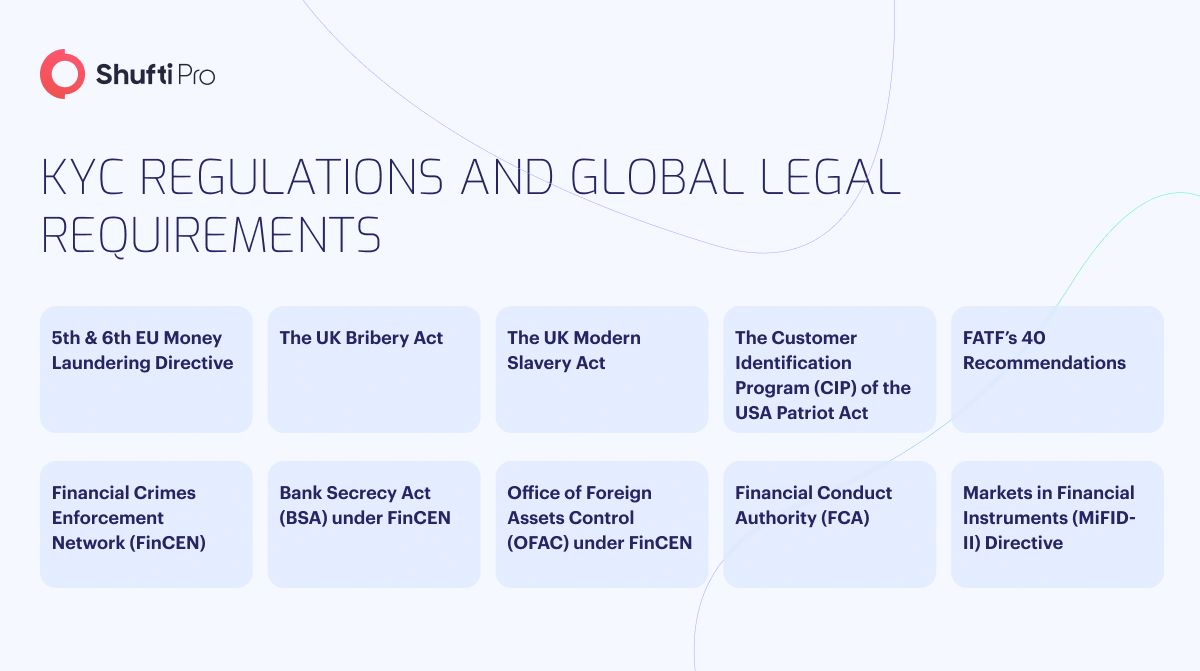Which KYC Solution is Right for Your Business?

KYC solutions are vital for assessing consumer risk and a legal necessity for complying with Anti-Money Laundering (AML) rules. Effective KYC processes entail understanding a customer’s identification, their financial behavior, risks they pose, and continuous monitoring.
The relevance of Know Your Customer (KYC) solutions has grown in the quickly changing digital ecosystem. As organisations attempt to maintain compliance, protect their operations, and accelerate customer trust, the right KYC solution becomes essential to their strategy. But, with so many options available in the market, how can businesses know which one is the best fit for their organisation?
What is a KYC Solution?
KYC, also known as Know Your Customer, is a due diligence process for businesses to verify the identity of their clients before onboarding them. The term KYC solution refers to the processes that a financial institution or company takes to:
- Validate a customer’s identity.
- Analyse the subject matter of the customer’s actions.
- Assess the money laundering risks associated with that consumer in order to monitor the customer’s activity.
Compliance with KYC requirements contributes to the prevention of terrorist financing, money laundering, and other common fraud schemes. Financial institutions or businesses can more successfully identify suspicious activities by validating a customer’s identity and intentions when the account is opened. Once they are onboarded, their transaction patterns are monitored to assess whether they pose any potential threat to the institution or not.
Why are KYC Solutions so Important?
The excessive use of advanced technology is required to fight against sophisticated financial crimes, for instance, terrorist financing, corruption, money laundering, etc. The KYC solution helps businesses to identify and verify a client’s identification as well as confirm that the customer is who they claim to be. As part of due diligence, the KYC check aims to prevent commercial partnerships from being established with individuals involved with illicit activities who pose a high-risk threat to the financial gateway’s business integrity.
KYC Solutions for Businesses
KYC solution is further categorised into different types. Before building a partnership and onboarding a client or customer, it is important to select a suitable KYC and AML solution. There are various KYC solutions available to verify or identify the customer. Sometimes, more than one solution is provided as those solutions are inter-connected, depending on the client’s requirements and accurate findings.
Customer Identification Programme (CIP)
The Customer Identification Programme (CIP) aims to verify the entity executing a financial transaction. This is required to combat money laundering, terrorist funding, and other illegal criminal actions that damage the financial system as a whole. In CIP, banks and many other businesses must gather user information to onboard them. This information contains the name, address, birth date, identification number, and SSN.
After gathering this information, it is cross-checked against supporting evidence obtained through biometric or document verification. CIP also includes an essential element for assessing business and customer account risk, allowing institutions to create parameters against which customers will be assigned a risk score. This varies according to the organisation and sector. The risk score given could be high, low, or, in some cases none at all.
Customer Due Diligence (CDD)
CDD is the process of screening a client’s data against KYC procedures. During CDD, name, residence, age, date of birth, and other personal information is obtained in real time. All of this information is utilised to validate the customer’s onboarding. The consumer is then assigned a rating based on credentials obtained from AML verification processes and financial credibility. When a client ID is highlighted owing to information found on watch, sanction lists, or PEP records, that individual is labelled as high-risk, and the Enhanced Due Diligence (EDD) process is implemented. CDD determines the extent of a customer’s danger to an institution and discloses individuals with a history of money laundering or terrorism funding.
Ongoing Monitoring
It is not enough to simply verify or onboard the customer once. Businesses must have a KYC or other programme to continuously monitor their customers. Based on a customer’s risk profile, the continuing monitoring role supervises financial activities and accounts.
Other criteria to monitor, depending on the client and risk mitigation approach, could involve increased activity, out-of-area or odd cross-border actions, people on sanction lists, and adverse media listings. If the behaviour is found obnoxious, businesses are required to file a Suspicious Activity Report (SAR).
Electronic Know Your Customer (e-KYC)
KYC verification is the process of validating a customer’s identification in order to ensure compliance with Know Your Customer rules. Personal identifying information from prospective customers must be obtained and verified by regulated businesses.
Wherever practical, these operations should make use of digital processes. There may be scenarios where digital techniques, such as obsolete legislation or difficult-to-change legacy regulations, cannot be used for online KYC. However, these exceptions are on their way out; electronic Know Your Customer eKYC is the future, and organisations may face penalties, fines, and even service cancellation if they fail to implement it.
Corporate KYC Solution
Know Your Business, sometimes known as corporate KYC, is a process that assures the verification of the business entities or enterprises and is an essential aspect of KYC compliance. Industry regulations and legislation pertaining to Ultimate Beneficial Owner (UBO) verification are currently being prioritised across the sector in an effort to develop a clean and legitimate consumer base alongside business relationships.
Factors to Consider When Choosing the Right KYC Solution
Choosing the right KYC solution provider is determined by the factors it has: business must consider the following key factors to work with the right KYC provider.
Compliance
The first and most critical consideration is regulatory compliance. Depending on the scale of organisational operations, the solution companies select must comply with all local, national, and worldwide laws. Noncompliance can result in significant fines, sanctions, penalties, reputational harm, and permanent exit from the business world. However, it is essential to select a solution that provides complete compliance.

Ease of Integration
The ease of integration is the next factor to look at. The KYC solution should work in tandem with businesses’ current systems. This ensures a smooth transition and no disruption to business operations. Furthermore, a solution that interfaces seamlessly with systems can improve efficiency by lowering the time and resources needed for the KYC process.
User Experience
The user experience is the third thing to examine. The KYC solutions are complex, lengthy, costly, and time-consuming, which may put customers off. As a result, it is critical to select a solution that simplifies this procedure whilst also providing a seamless and intuitive user experience. This improves the client experience and the probability of accurate verifications.
Scalability
Scalability is the last factor to look at. As the organisation grows, the KYC solution must be able to expand with it. This means that it should be able to deal with a growing number of verifications whilst maintaining speed and accuracy. A scalable solution can help businesses grow and meet the company’s growing needs.
Selecting a KYC Solution
Businesses will understand what they require in a solution based on the rules and regulations in force. However, there are various factors to consider. Take the following procedures to finalise the KYC solution business requirements.
- The first step in choosing a KYC solution provider is to describe business requirements. To begin, evaluate the current company practices and situation.
- Next, determine which solutions offer the characteristics that businesses require. Structure the evaluation process with comparisons of features in a few crucial areas for every system to make things smoother.
- Now that the essential features have been assessed, it’s time to analyse the pricing alternatives of each KYC service provider. Verifications and service types play a role in determining the price.
- Request an evaluation for a couple of KYC platforms to evaluate which one best matches business needs. Many KYC solution providers also offer a free trial period.
The Importance of Choosing the Right KYC Solution
KYC compliance creates a contradiction between risk management and sales. Since 2008, enforcement efforts have cost financial firms more than $300 billion. The KYC software businesses select must strike the ideal mix between user satisfaction and regulation. Providing adequate risk assessment capabilities should be easy and allow the team to execute compliance with Customer Due Diligence (CDD) procedures.
Some software may make the KYC verification procedure a little easier for customers, but it exposes financial institutions to fines, sanctions, and penalties for KYC failures. Other options may allow institutions to retain a high degree of compliance whilst discouraging potential clients from collaborating with the organisation. That is why it is vital to choose a solution that allows for easy client onboarding whilst offering monitoring to ensure compliance.
KYC Solution for Your Business Needs
Choosing the correct KYC solution is an important decision for any business. Many aspects influence it, including compliance, integration, user experience, time, resources, budget, scalability, etc. By analysing such elements, businesses can ensure they select a solution that fulfills their goals.
Shufti excels at providing cutting-edge KYC solutions to all industries, regardless of how old or new it is and how far our clients’ wings have extended; we provide services to them in 240+ locations and states. We offer global real-time verification and support 10,000+ documents in 150+ languages with 98.44% end-user happiness and satisfaction. Our KYC solution is simple, easy to integrate, time-saving, reduces errors or resources, provides scalability, best-in-class user experience, and is cost-effective, whilst maintaining compliance.
So, when are you booking your free demo to get the best-in-clas KYC solution?











